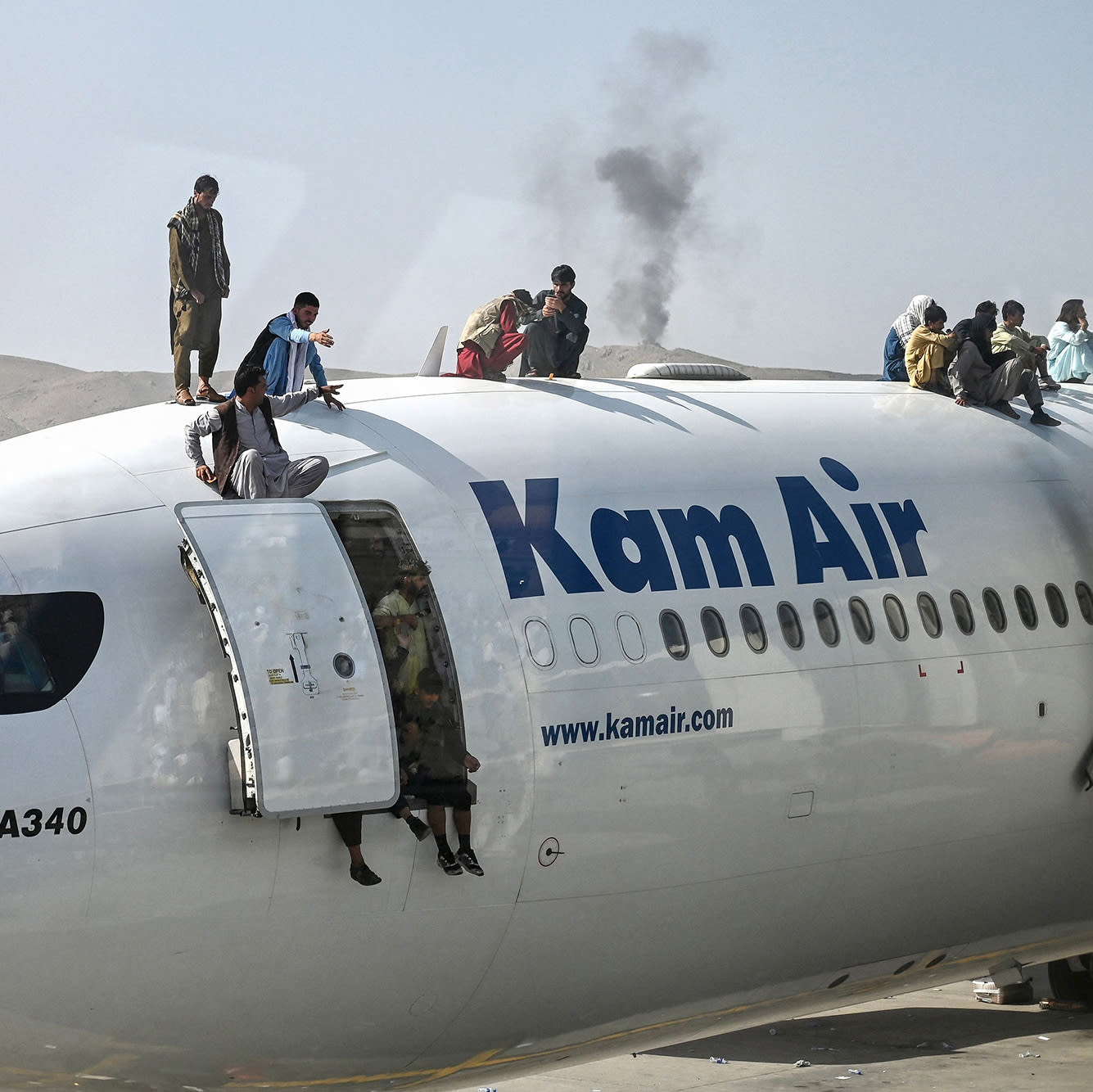
In 1986, Charlie Sheen starred in “Platoon,” a bloody Vietnam war film about the many lives brutalized, and the many lives lost, in an unwinnable war.
It was hard not to think of that film watching the Taliban consume Afghanistan this week, with American forces gone: so much blood needlessly spilled, so much American treasure that could have been put to better use.
The images of terrified Afghan civilians trying to scale airport fences and chase airplanes weren’t at all subtle.
It was also hard not to think of the American leaders who ignored the classified studies like the Defense Department’s Pentagon Papers, telling them that no matter how many troops we deployed, the United States could never prevail. The images and videos of terrified Afghan civilians trying to scale airport fences and chase airplanes weren’t at all subtle. But students of Vietnam have known for a long time how this war was likely to end. Through history’s lens, the Vietnamese understandably saw our country as just the next invader to be driven back. The Taliban have now driven their invader back.
Long before we sent soldiers to Kabul and Kandahar, however, American military leaders and policymakers have had access to the hard facts and lessons of Vietnam.
- The role of the global policeman and “nation-building” via military intervention should be avoided, even in the throes of righteous anger like the kind that spurred us into Afghanistan in the wake of 9/11.
- Countries with long histories of expelling foreign invaders are not promising venues for military involvement, especially if that government is basically our creation.
- Foreign armies that are unable or unwilling to understand and participate in the invaded country’s culture and language are likely to fail.
- Empowering a nation’s people, not just friendly leaders, must be the centerpiece of strategy, not of lip service.
- Where there is no realistic chance of military intervention succeeding, economic support and cooperation — if feasible — are surer routes to stability and progress.
Communist Vietnam now embraces trade and cordial relations with the United States, even thinking of us as its protector against an historic enemy, China. Today, the drive from the airport into the capital, Hanoi, is lined with signs advertising transnational corporations. If Rip Van Winkle had fallen asleep in 1967 and only just awoken, he might be convinced that the U.S. really had won the war.
Of course, we didn’t, as we are reminded by the haunting similarities between video of today’s helicopters shuttling people from Kabul’s U.S. Embassy and the 1975 images of overfilled Army helicopters lifting evacuees from the roof of the U.S. Embassy in Saigon
But the parallels between Vietnam and Afghanistan go beyond images. Afghans, too, have endured centuries of invaders, the penultimate being the Russians, defeated in 1988 after a decadelong war. Both American wars lasted two decades. In 1967, the American government regularly proclaimed that there was “a light at the end of the tunnel” in Vietnam, with Vietnamese troops improving in their war-making performance. Similarly, U.S. presidents and military commanders have assured Americans periodically that we are winning, and specifically, that we are building “a strong Afghan army and police force that can defend the country on their own.” This, we now can see, was tragically not even remotely true.
Finally, South Vietnamese government leaders lost legitimacy due to repression and corruption fueled by the influx of billions of American dollars. In Afghanistan, too, much of our $132 billion reconstruction funds was “wasted, stolen or failed” to be used as intended.
None of this is to minimize today’s cruel reappearance of a fundamentalist military government, or the serious mistakes made during the planning of America’s withdrawal. But there is no denying the waste of a 20-year war.
Had President Lyndon Johnson had the courage to cut American losses upon taking office and not sought to deceive the American people about South Vietnam’s self-sufficiency, he most likely would have saved 58,000 of the 58,200 military lives lost.
President Joe Biden pulled the plug on this war seven months into his term, finishing a journey started by then-President Donald Trump in February 2020.
Whatever one thinks of Biden or Trump, the road to foreign policy hell is paved with an unending belief in American exceptionalism from history’s teachings. In the images from Kabul, we see the echoes of unbearable lessons. May the harsh reality of this second failure convince future leaders that a third time would not be a charm.
Source: | This article originally belongs to Nbcnews.com









